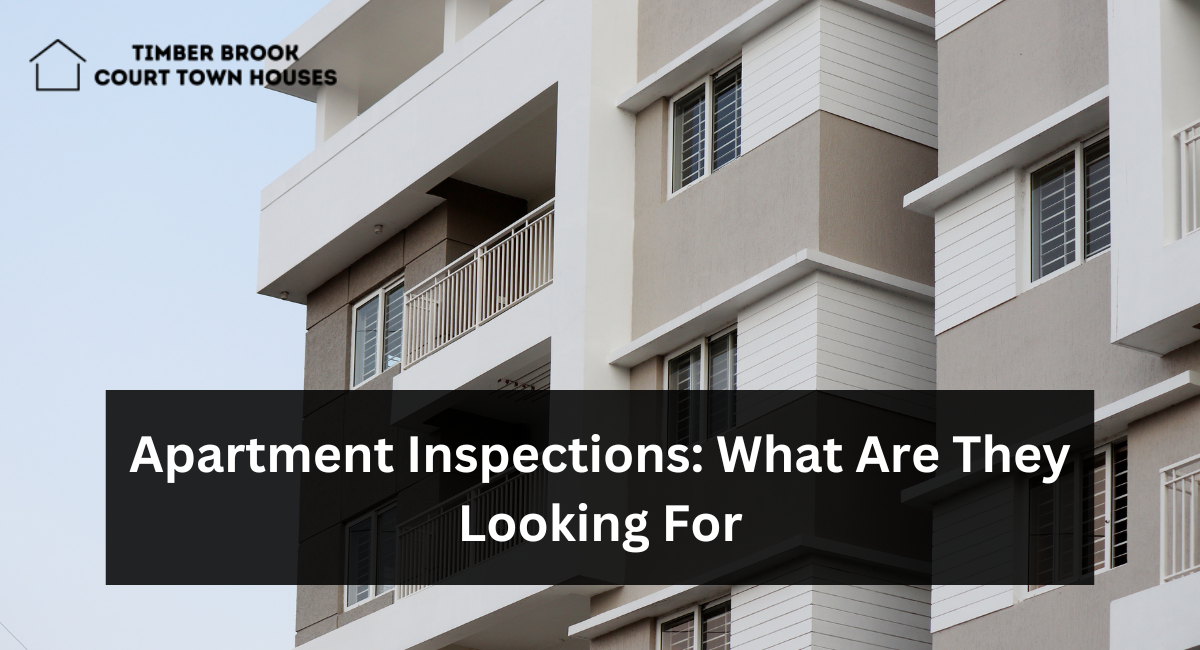Renters need to understand that apartment inspections are part of being a renter. Landlords may conduct these inspections for various purposes, such as checking for lease violations, such as keeping pets illegally or producing excessive noise levels in the apartment.
Putting into practice specific procedures will help ensure a smooth apartment inspection experience: cleaning, maintaining, and adhering to lease agreements are among them.
Appliances
Landlords will typically inspect all appliances within an apartment space, including dishwashers, stoves, and washer/dryers. These must be clean and working efficiently; inspectors may look at windows, doors, and outdoor spaces such as balconies to ensure functionality.
Bathrooms should also be kept in top shape, so a thorough deep cleaning should be performed to eliminate mold, mildew, and grime from their surfaces. Inspectors will look for signs of rodent droppings that indicate pest infestation in your space.
Landlords must give tenants at least 24 to 48 hours notice before apartment inspections, specifying both date and time and whether you must be present for it. Sometimes, they’ll use online tools like Repair Pricer as a resource to estimate costs associated with specific repairs that may need doing.
Electrical
Inspections of electrical appliances are an integral component of apartment inspections, including looking out for exposed wiring, overloaded circuits, and faulty outlets that could potentially cause fires or shocks and should be addressed quickly to avoid fires or shocks.
Check fuses, switches, and plugs – they should all be working. Damaged appliances show a lack of care for the rented property and may lead to failing an inspection.
Examine the exterior of the building as well, looking out for any damage to the structure, holes in fences or screens, pests, and potential security breaches. Your landlord must give 24 – 48 hours of notice, so if an inspection becomes inconvenient, ask to reschedule and ensure you have ample time. Doing this may prevent charges for violating lease terms from being levied against you and avoid penalties associated with violations. Alternatively, consider other apartments if your landlord refuses.
Plumbing
Apartment inspectors make the bathroom one of the main areas they inspect during an apartment inspection. Inspectors look out for loose toilet seats, broken sinks or faucets, showers that leak water or aren’t adequately insulated, and any signs of mold and mildew growth. Furthermore, water pressure will also be tested to ensure all fixtures and vents are operating efficiently.
Bedrooms are another common target for inspection since tenants spend most of their time there. Inspectors will evaluate the room’s general state, including its flooring, carpeting, and blinds, and test any detectors or locks installed to assess safety measures like fire, smoke, or carbon monoxide detectors or door locks that might be present.
Inspectors will also conduct thorough stairwell inspections, checking them for obstructions or damages that might present risks for tenants. Furthermore, they’ll look for signs of pest infestation, such as small brown pellets or insect eggs in crawl spaces or behind walls.
Smoke detectors
Landlords and property managers are legally allowed to conduct apartment inspections before you move in or out. This inspection verifies that tenants maintain their units well and do not violate lease agreements. Landlords typically provide between 24 and 48 hours of notice of a review, whether or not the tenant is home. Tenants can improve their chances of passing by actively cleaning up their space, such as vacuuming carpets, wiping surfaces down, tidying walking areas, and clearing away obstacles such as those found within furnace closets.
Electrical hazards like exposed wiring and faulty outlets pose a real danger to residents’ safety, potentially leading to fires. Appliance damage indicates poor care and maintenance on behalf of tenants and may result in failing an inspection. Landlords also monitor for evidence of illegal guests or pets entering since this violates lease agreements and can cause irreparable structural damage to property.
Asbestos
Landlords may inspect for chewable surfaces in walls and ceilings, damaged sub-surfaces, signs of staining or scratches on hardwood flooring, and the presence of pets without appropriate documentation and authorization.
They will inspect for unapproved alterations to the structure or decor, pest infestation signs, leaky pipes under sinks, electrical problems, the condition of appliances and windows, and outdoor areas such as balconies.
Landlords must provide 24-hour notice before coming for inspections, so ensure your lease and any additional agreements are ready and reviewed regularly. Be sure to pay rent on time without violating any lease terms, as this could cause your apartment to fail inspection and lead to the forfeiture of your deposit.
Structural integrity
Landlords will typically inspect rooms to make sure walls and windows are sound, windows close tightly, and no signs of pest infestation exist. In addition, they will go from room to room, checking all appliances, working, and doors closing and locking securely while looking out for signs of insect invasion.
Apartment inspections should always be conducted with adequate notice and tailored to a property’s current state. Landlords and property managers can report damage from smoking or violations and inspect for safety issues like smoke detectors, water heaters, clogged drains, or electrical faults.
Building maintenance personnel may inspect more oversized ticket items like the roof or boiler; this responsibility typically falls to homeowners rather than apartment complexes. Also, apartment complexes don’t usually check exterior homes since that falls under the homeowner’s responsibility, not their fault.
Conclusion:
In conclusion, understanding what landlords are looking for is the key to a successful rental application. From financial stability and a solid rental history to good communication skills, tenants can align themselves with landlord expectations. Responsiveness, honesty, and a genuine interest in maintaining the property contribute to building a positive and lasting relationship between tenants and landlords.
As tenants strive to meet these criteria, landlords, in turn, aim to secure trustworthy and responsible individuals to occupy their properties. By recognizing and embodying the qualities sought by landlords, tenants set the stage for a harmonious and mutually beneficial rental experience.

